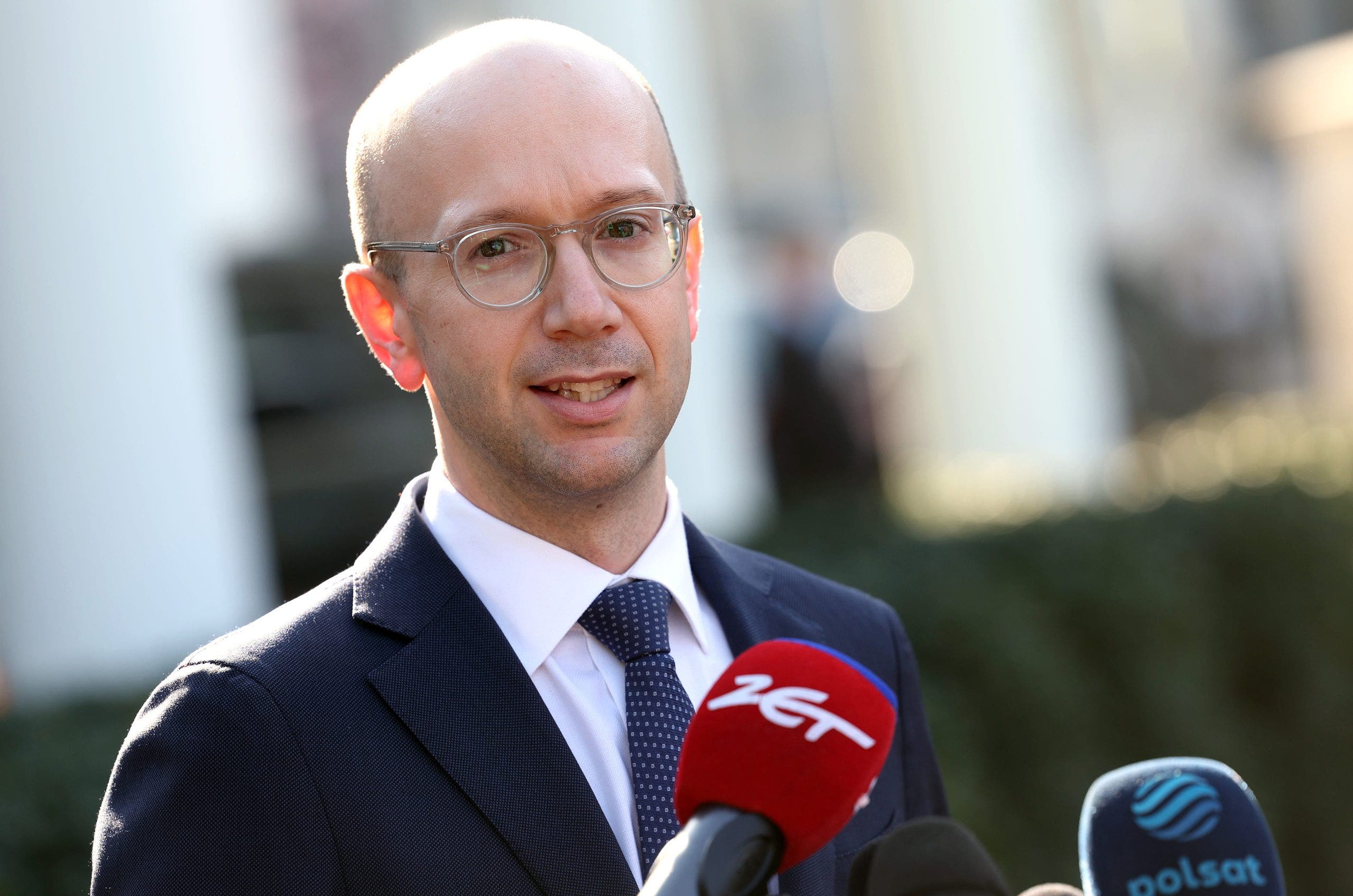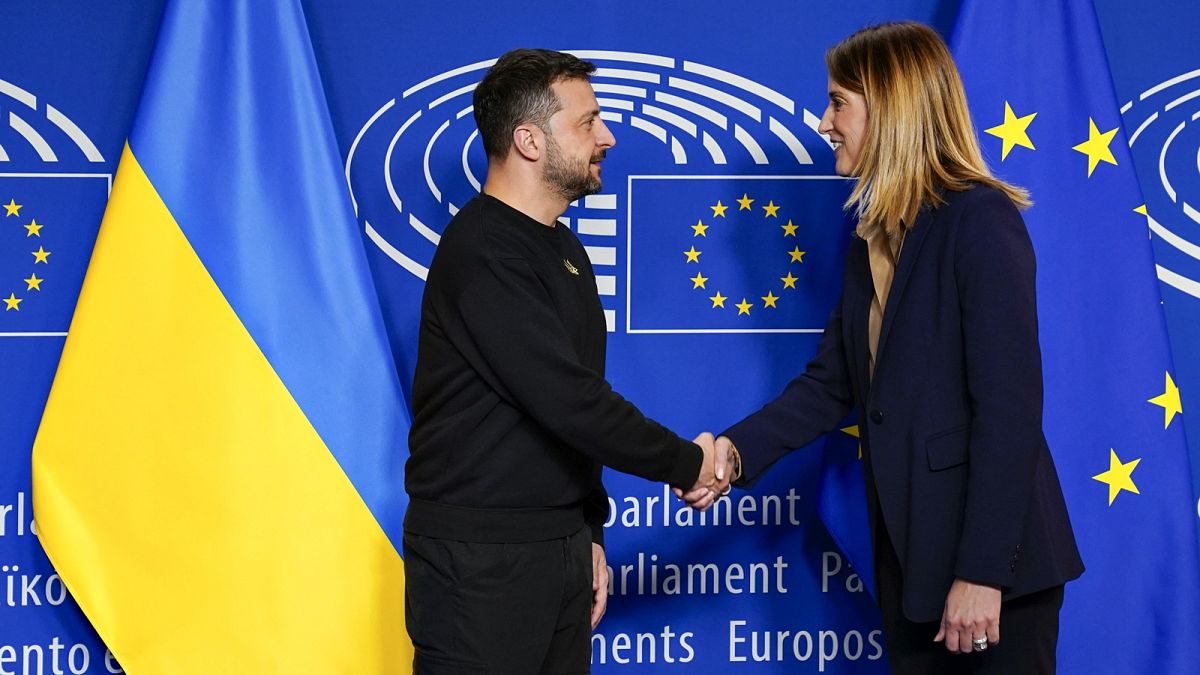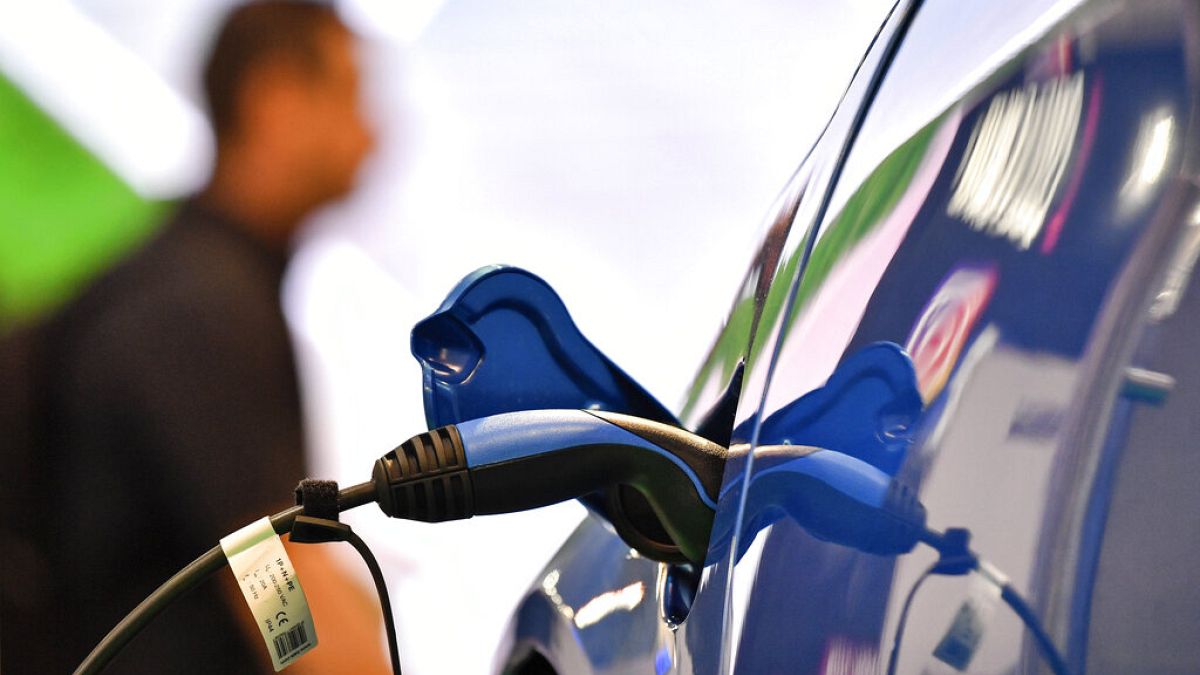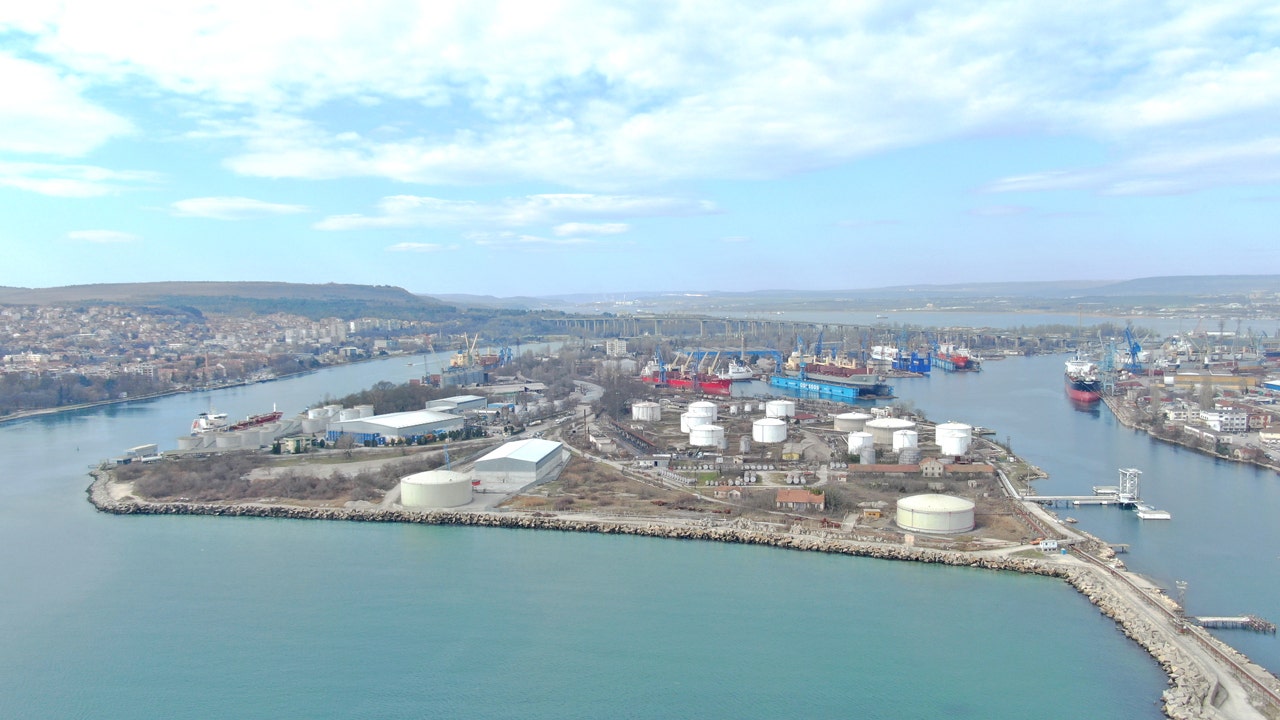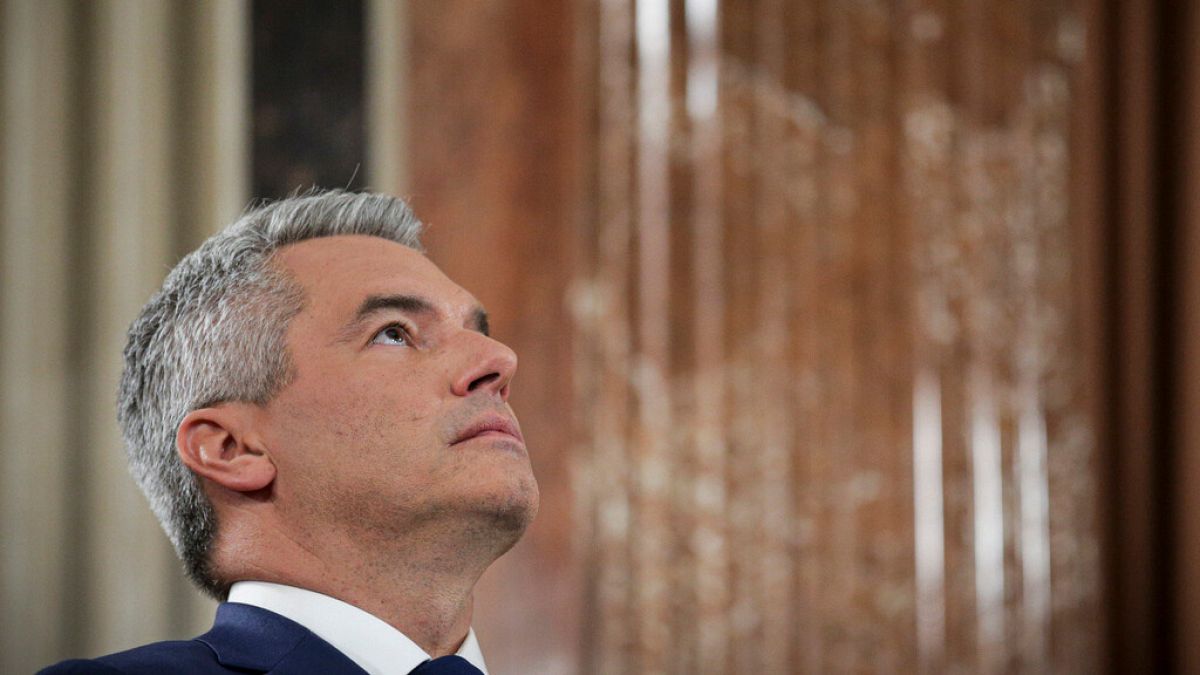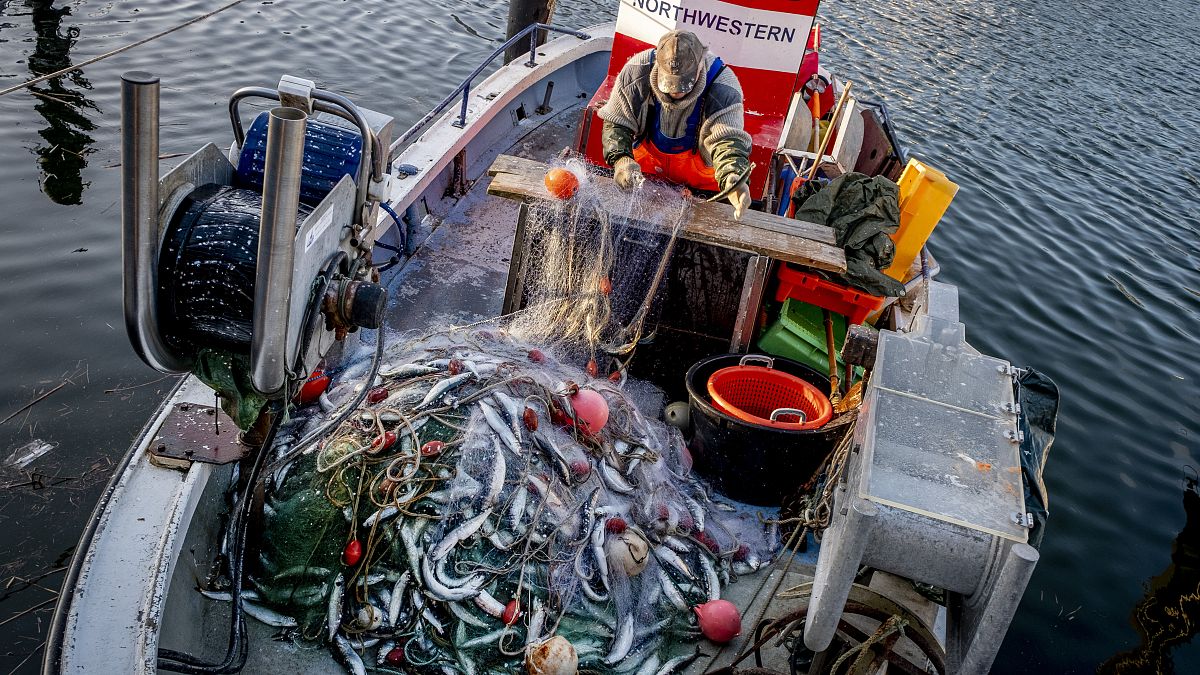The proposed loan for Ukraine split the far-right Patriots for Europe (PfE) group, with some of its members voting in favour and others against.
The European Parliament on Tuesday overwhelmingly backed a ground-breaking initiative to issue a loan of up to €35 billion for Ukraine using the immobilised assets of Russia’s Central Bank as collateral for the repayments.
The plan received 518 votes in favour, 56 against and 61 abstentions in Strasbourg. Lawmakers agreed not to table any amendments to speed up the final approval in the Council, where it already got the preliminary green light.
“This is another historic moment,” said European Parliament President Roberta Metsola, who welcomed President Volodymyr Zelenskyy in the hemicycle last week.
“With this vote, we’re sending a very strong message that we’re using profits from Russian frozen assets for Ukraine, and Russia, as an aggressor, must and will pay for its destruction,” she added, as an unidentified man heckled from afar.
Notably, the proposed loan gathered the support of several far-right lawmakers, who tend to oppose providing military and financial assistance to Ukraine. (The €35 billion will be undesignated, meaning Kyiv will spend it as it sees fit, including on weapons.)
Over 20 MEPs of the far-right Patriots for Europe (PfE) voted in favour of the credit, while almost 40, including its president, Jordan Bardella, chose to abstain. Bardella was among the group leaders who met with Zelenskyy last week.
Only seven of the PfE’s 86 MEPs voted against the legal text.
The numbers represent a modest contrast compared to the resolution in support of Ukraine that the Patriots largely voted down in July.
However, the Europe of Sovereign Nations (ESN) group, the most radical, disruptive force to the right, reaffirmed their hostility and moved in unison against the loan.
The vast majority of the hard-right European Conservatives and Reformists (ECR) group, which is dominated by Giorgia Meloni’s Brothers of Italy and Poland’s Law and Justice, endorsed the initiative, as they have done with other Ukraine-related files in the past.
No lawmakers from the the centrist factions, the European People’s Party (EPP), the Socialists & Democrats (S&D) and Renew Europe, voted against Tuesday’s text.
Orbán’s latest veto
The Parliament’s widely-expected blessing paves the way for a rapid roll-out of the loan.
Once the Council gives its final approval, the European Commission will be allowed to raise the money on the market and begin disbursements to Kyiv in early 2025.
But some of the puzzle pieces are still missing.
The €35 billion credit is designed to be the EU’s share of a wider G7 initiative to provide Ukraine with a €45 billion loan ($50 billion) in immediate financial relief. The windfall profits of the Russian frozen assets will be leveraged to cover the gradual payments and interest rates, exempting Kyiv’s and the West’s coffers.
Under EU law, the sanctions on Russia have to be renewed every six months, which makes it possible for a single country to stop the move, unfreeze the assets and throw the G7 loan into disarray. Fearing a Hungarian veto, Washington demanded a longer renewal period to increase the stability and predictability of the untested scheme.
Brussels then proposed renewing the sanctions on the frozen assets every three years (36 months) but Hungary said it would block any changes to the sanctions regime until Americans elect their next president on 5 November. (Prime Minister Viktor Orbán has said he would celebrate Donald Trump’s victory with “several bottles of champagne.”)
Diplomats scoffed at Budapest’s argument, calling it counterproductive as the more the EU contributes to the G7 plan, the higher the risk for the common budget.
According to the Financial Times, the US has indicated its readiness to shoulder €18 billion ($20 billion), even if Orbán keeps his veto in place. The concession could bring the EU’s share down from €35 billion to €18 billion, with both sides at equal parts.
The United Kingdom, Japan and Canada will put up the rest of the money. London has announced that it will contribute £2.26 billion (€2.7 billion, $3 billion), while Ottawa said it would contribute 5 billion Canadian dollars (€3.3 billion, $3.6 billion).
Further details on how much each ally will contribute are expected after G7 financial ministers meet in Washington later this week.
Read the full article here






